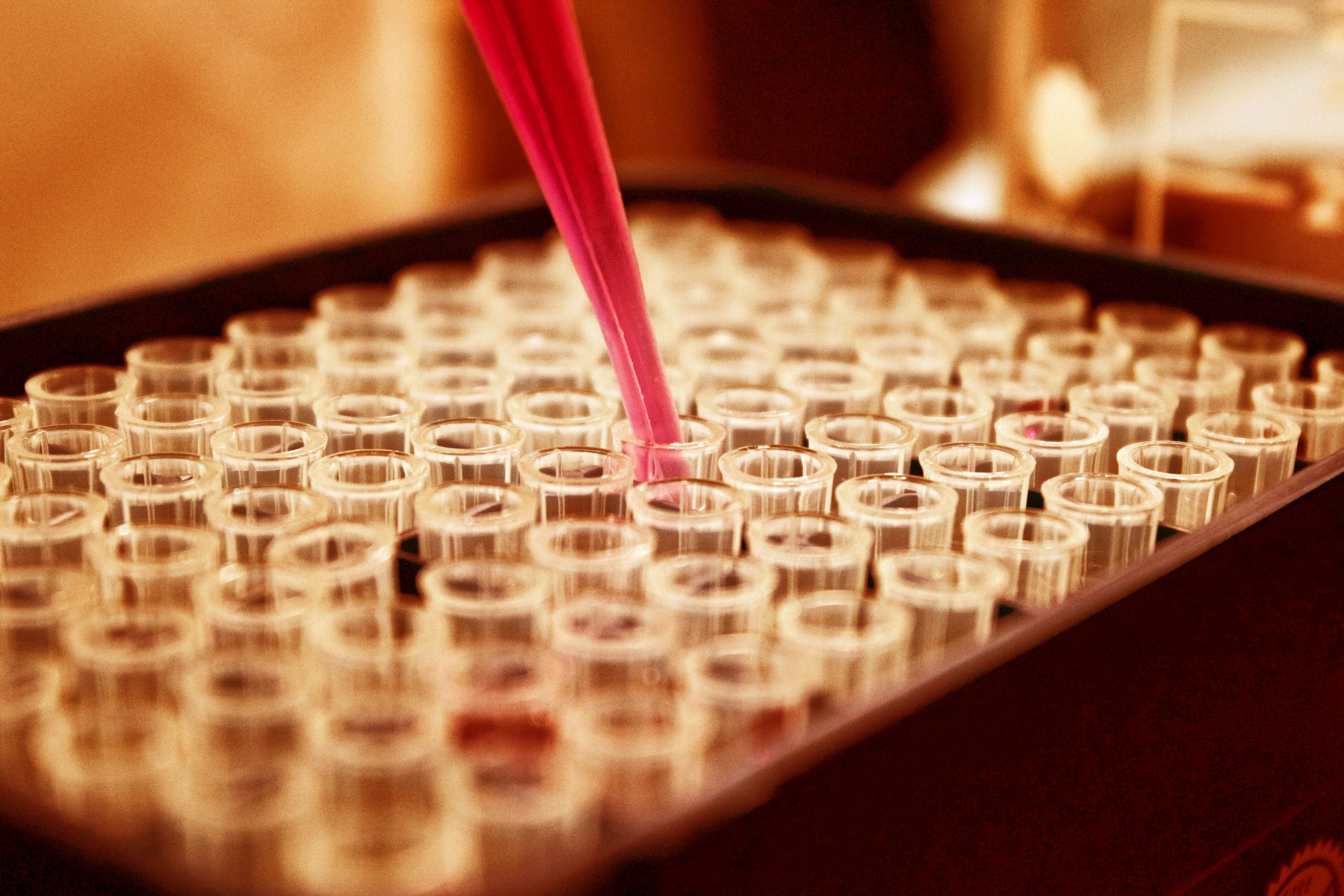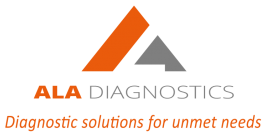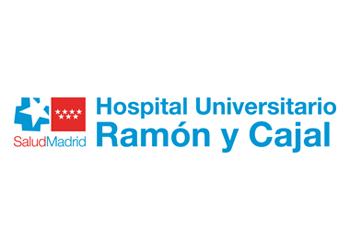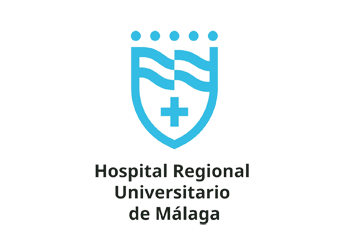About us
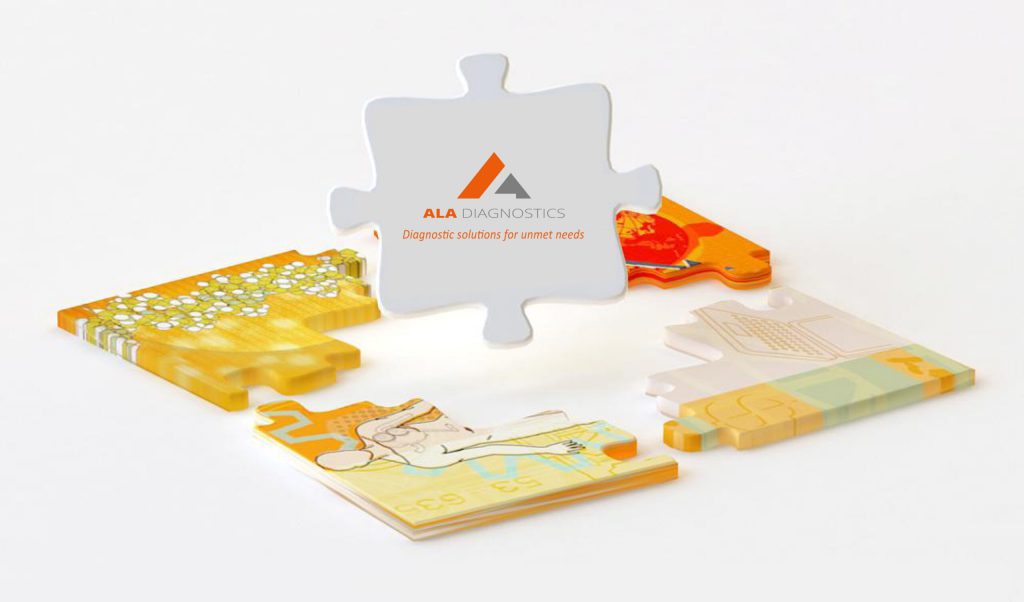
ALA Diagnostics aims to develop and commercialize in vitro diagnostic kits for diseases with high prevalence and unmet medical needs.
Our first product is the ALA Diagnostics MS Kit, the first rapid, cost-effective, and reliable diagnostic system for Multiple Sclerosis. The MS Kit is non-invasive, easily integrated into clinical practice, and suitable for the early diagnosis of this condition.
Join our project
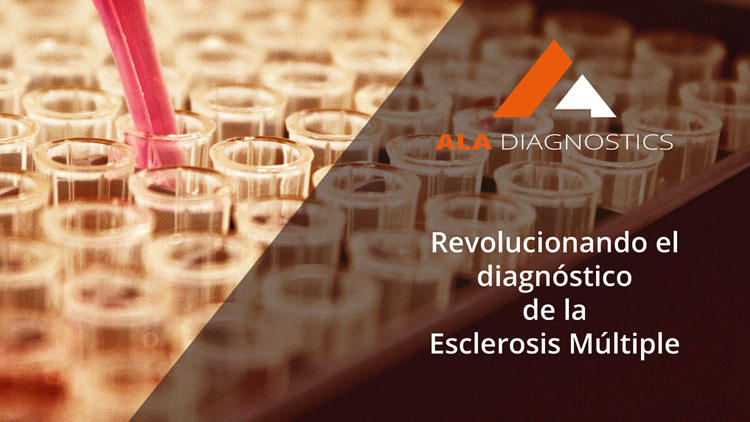
At ALA Diagnostics, we are working to revolutionize the diagnosis of Multiple Sclerosis, a disease that remains difficult to detect early and accurately. We are developing the first non-invasive kit capable of identifying the disease from a simple blood sample, providing fast and reliable results from the earliest stages.
Thanks to this breakthrough, patients will gain earlier access to treatment, helping to prevent irreversible neurological damage and significantly improving their quality of life. Our system, in addition to being simple and cost-effective, is designed for seamless integration into routine clinical practice, making it a key tool for healthcare professionals.
We are currently in the phase of international clinical trials, a crucial step before the planned launch in 2026. To make this possible, we have launched a crowdfunding campaign that will help us complete this final stage and bring our solution closer to hospitals and patients around the world.
If you would like to learn more and support this breakthrough in Multiple Sclerosis diagnosis, we invite you to explore our campaign.
Team
Executive Team
-

José Ramón Montero
General Manager, Co-Founder
Pharmacist with a Master’s degree in Biotechnology Business Management, he has 19 years of experience in the biotech sector. His expertise includes R&D project management, feasibility analysis, business planning, and strategic consulting for biotech start-ups. In 2008, he co-founded Innovative Bioconsulting, a strategic consultancy firm specialized in biotechnology, where he leads company management, client acquisition, and project portfolio oversight. Since 2019, he has also served as CEO and Chairman of the Board at ALA Diagnostics.
-

Óscar Fernández, MD PhD
Chief Medical Officer (CMO), Co-Founder
A clinical neurologist with over 40 years of experience, he is a global reference in the diagnosis and clinical research of Multiple Sclerosis. He has participated in more than 100 clinical trials and published over 250 articles in indexed scientific journals. Former Head of Neurology and Director of the Clinical Neurosciences Institute at the Regional University Hospital of Málaga, he has also chaired Spain’s Multiple Sclerosis Medical Advisory Committee and served on the boards of both the Andalusian and Spanish Neurology Societies. He is currently a trustee of the European Charcot Foundation and co-inventor of the patents behind ALA Diagnostics, where he has been involved since the project’s inception.
-

Susana Frago
Laboratory Manager
With degrees in Biochemistry and Organic Chemistry, and a PhD in Biochemistry, Molecular and Cellular Biology from the University of Zaragoza, she has pursued research at institutions such as Emory School of Medicine (USA), UCD Conway Institute (Ireland), the CSIC in Seville, and the University of Oxford. She was a Marie Skłodowska-Curie Fellow (H2020). Since 2022, she has worked in the biotech industry as a protein engineering specialist, contributing to the preclinical development of antibody-like therapeutic molecules.
-

Amparo Fornés
Finance Director
Graduated in Business Administration and Management (with Honors), she holds a Master’s in Taxation and is a Certified Auditor registered with the ROAC. She has over 20 years of experience in corporate administration. After starting her career in auditing, she later led administrative departments in various companies. Since 2009, she has been a partner at Nesgo Auditores, a firm specializing in accounting and tax advisory. She also teaches financial and tax-related subjects to students and professionals. Since 2023, she has led the financial, accounting, and tax areas of ALA Diagnostics.
Core Team
-
José Pavía, PhD
Co-Founder
-
Beatriz Tamés
Project Coordinator
-
Gema Escalera
Laboratory Technician
-
Sonia Sánchez
Laboratory Technician
Partners
Contact
Where we are
López de Hoyos, 27
28006 Madrid – Spain
